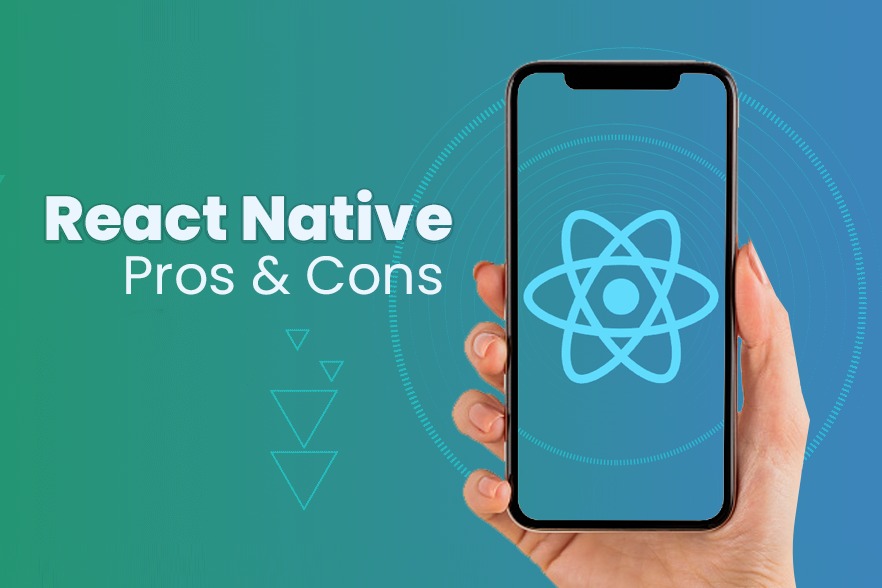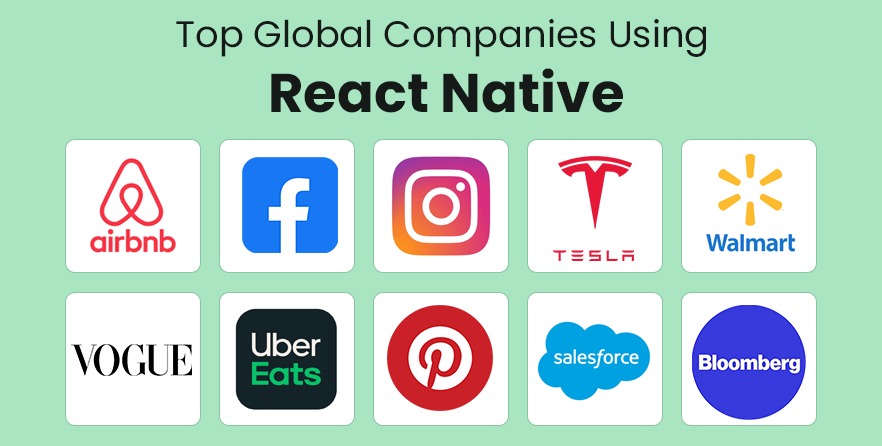
Facebook, Instagram, and WhatsApp are built on a React Native framework that allows at least 95% of the code to be reused for both their Android and IoS apps. When developing mobile applications, developers and business stakeholders are often faced with two options: they can either develop a ‘native’ app that is engineered towards one specific OS (Android or iOS) or a hybrid app (that uses cross-platform app development) that can be used on both. While hybrid apps are quicker and less expensive to develop than native apps, there is a tradeoff when it comes to security and user experience.
To circumvent this challenge, there is a cross-platform app development language that can offer the efficiency of hybrid apps with the smooth UI of native apps: React Native. Let’s dive into what this coding language entails and some of the top pros and cons of React Native App Development.
What is React Native?
First developed by Facebook in 2015, React Native is one of the most popular mobile app development frameworks that allow for the development of cross-platform applications. React Native app development uses an open source framework and Javascript to create apps that can function equally effectively on iOS and Android.
Previously, developers would have to use Swift or Obj-C to build apps for iOS and Java for Android. With React Native, the fundamental building blocks of an app are the same for both operating systems and up to 95% of the app can be coded in the same language. This makes it a highly effective cross-platform app development framework enabling quick app updates that are especially advantageous in a fast-moving market.
React Native app development uses an open source Javascript framework, to create apps that can function equally effectively on iOS and Android.
React Native Pros and Cons
Building a mobile application requires intensive planning and resource allocation before the project can even begin. The first and most important decision is deciding on the coding language to use as it will affect the talent needed, budget, and overall timelines. Here are some advantages and disadvantages of React Native app development to help you decide if it’s the right option for you.

React Native Pros
1. React Native offers a more efficient app development process
By far one of the biggest pros of developing a React Native app is that it uses resources more efficiently.
- Since there is no need for two separate codebases to be built, the amount of time and money required to build the final app is halved.
- With Native apps, you often require two dedicated teams of developers to develop the app for each OS since it’s extremely difficult to find individuals equally well-versed in both coding languages.
- When building a React Native app, you only need a small specialized team to create the app end-to-end. Any bugs or new features to be added need to be worked on only once and developers do not have to keep checking compatibility when introducing a new feature.
React Native apps are easier to monitor and maintain since there is only a single codebase. If speed and smart budget allocation is a priority for you, then you should create React Native apps.
2. Code reusability and web-based development
To create a React Native app is largely a one-time effort. In React Native app development, developers can keep reusing the same code on both Operating Systems and even on websites. At least 90% of the original Javascript code remains the same on Android and iOS with developers having to make minimal tweaks to ensure Native-like functioning on each OS. Since the code can also be utilized in website development, the total website development timeline can also come down drastically.
Flipkart, is one of the biggest eCommerce brands in India, with over 100 million downloads. They faced the challenge of needing large development teams, to support their IoS and Android apps. The switch to React Native framework helped them to push frequent OTA updates and push up their engagement metrics.
3. Open source framework offers numerous free resources
Javascript is one of the best mobile app development frameworks that have multiple free tools, libraries and shortcuts that can make it easier for your developers to build the app. Flutter, Google’s alternative to Javascript, is also an open source framework but is not yet quite as extensive as the latter.
The active developer community for React Native constantly improves the features offered, expands the capabilities of the language and provides helpful troubleshooting tips. There are many ‘plug-and-play’ codes that developers can use if they want to implement similar features in their app. The open source library also offers free testing tools so developers can identify and iron out bugs before the app goes live.
React Native cons
Rather than calling it disadvantages, they are rather specific features that must be considered.
1. Performance-hit for gaming apps
If you plan on using major animations or if you anticipate that your app will be used on screens of different sizes, then React Native app can be a little sluggish. Facebook is aware of this issue, however, and its engineers are actively working to resolve it. React Native apps are getting closer to the 60fps industry benchmark that native apps provide.
2. Limited ready-made components
Android and IoS have been around for longer so they have a larger library of third-party components. While the component list is steadily increasing, it might limit your app.
3. Testing can take a longer time
Though React Native apps can shorten development time, the same can often not be said of the testing phase. Testers have to test out the application on both platforms to ensure that the code doesn’t result in any errors on either OS. The flipside to this, of course, is that resolving the code error once will simultaneously fix the issue in both operating systems.
Take Your App Idea Further with React Native
React Native is a powerful new mobile app development technique that is used by some of the most popular apps on the market today, including Facebook’s umbrella of applications. If your audience is equally divided between Android and iOS, if you want to utilize your available talent and resources efficiently and if your app doesn’t involve complex graphics and animations, then the best way forward would be to create React Native app.
Do you want to know more about the feasibility of React Native frameworks for your app? Talk to our consultants for expert insight.






